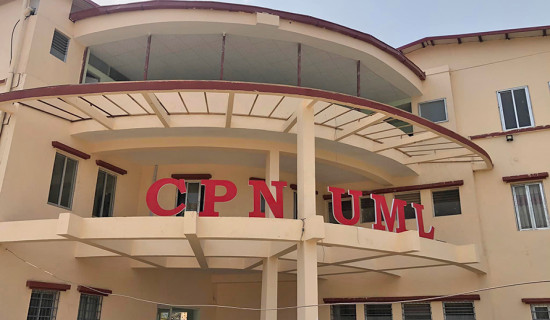- Sunday, 12 October 2025
Suraj Pandit shines in music industry after the success of 'Rail Ko Bato'
By Avaya Shrestha
Kathmandu, October 31: You might remember the iconic song by Suraj Pandit, 'Railko Bato Pugdaicha Re Timi Basne Saharaima' (It is said that the train track is reaching the town where you live).
It is the kind of song that resonates deeply, sketching a poignant image of class discrimination and the toughness of the Karnali region.
The song became so popular that it led to a sequel 'Singha Durbar', a composition just as evocative, featuring stirring tunes and visuals.
Since then, Suraj has released many other songs, with more to come. Most of his recent songs feature his lyrics and music. In the upcoming Nepali film 'Laj Sharanam', he is the lyricist, composer, and singer in the song 'Hira Bagchha Karnalima,' as well as three other songs 'Hera,' 'Mera Pahad,' and 'Shirma Ribbon. He has given his voice to several folk and pop songs like 'Maya Basyo Jumla Bazaarma,' 'Nau Danda,' and 'Tamra Manma', which are in the pipeline.
Yet, 'Railko Bato…' may echo in your mind. You might not remember the names of its writer, composer and singer right away, but the powerful lyrics, strong imagery and unforgettable scenes from the music video will surely come rushing back to you. Written by Lekhraj Giri with music by Suraj Pandit, the song sung four years ago has been performed by three different artists across distinct versions: Suraj Pandit himself sings the male version, Smriti Shahi the female, and Suprime Malla Thakuri the children’s version. Each version of the music video has been viewed close to nine million times on YouTube.
Whenever we talk about Karnali, we visualise waterfalls, serene lakes, snow-covered settlements, rugged paths and long caravans of sheep, yaks, and mules passing by houses with earth-covered roofs built into hillsides. These are the exact scenes brought to life in the music video, with each word lifting the listener.
The lyrics of “Railko Bato…” highlight the stark contrast between rural and urban Nepal:
Railko bato pugdaicha re timi basne saharaima
Humla kahile motor aulā, basya ko chu raharaima
Sitāmal ko abhāwma marnu parne kohi
Chot lage ni, bhok lage ni basnu parne roi
( It is said the track of the train is reaching the city where you live
I still dream of Humla running motor roads someday
But here we have to die with no cetamol
Managing wounds, hunger somehow, we endure in silence.)
For ordinary people in Karnali, transport means mules walking along steep trails. Barefoot, they gather firewood and grass out of sheer necessity. In the cities, meanwhile, elites walk on streets adorned with red carpets. This song speaks to these raw injustices with a boiling passion. In 'Singha Durbar,' Suraj not only composed but also penned the lyrics, maintaining the same emotional intensity in both lyrics and visuals.
Jau kata gaun chhadi, lukne sahar dekhya chhaina
Thulo mahal banai basne, tyo ni mero rahar haina
(Where would I go, leaving my village? I did not even see a city where I can hide
building a big palace is not my desire either)
The song raises sharp, thorn-like questions, “When will we have roofs over our broken shelters? When will we have food enough to kill our hunger?” It questions why the capital has forgotten the paths to the villages, wondering if the people of Humla are also considered Nepalis. The song captures the anger over unkept promises after revolutionaries entered Singha Durbar, lamenting the extreme poverty, lack of hospitals, and conditions that force Karnali's people to live as if in the Stone Age.
Suraj, a singer from Jumla, said, “This song was created as a response from the perspective of independent working-class citizens against the impact that the government and our political environment have left on society.”
'Railko Bato…' was the song that truly established his identity. During the last local elections, political parties used the sequel 'Singha Durbar,' as a rallying anthem in villages across Jumla.
Born on February 23, 1991, in Maliabid-4, Chandannath Municipality of Jumla, Suraj did not have an easy journey to establish himself in Kathmandu’s music scene.
Now well-established, he still brings the essence of Karnali into his music. In 2021, his music on 'Railko Bato' earned him the Bindhyabasini Music Jury Award for Music. He later received the Rara National Music Award 2079, the Best New Singer Radio Kantipur National Music Award 2079 and in 2080, the Provincial Talent Award for Music and Theatre from the Karnali Provincial Government.
Suraj believes many talents are unable to rise due to a lack of access and financial resources. Established artists are also facing pressure to leave the country. He thinks that the Academy of Music and Drama should act as a bridge between talent and the state. He wishes music should champion justice, humanity, and the advancement of human civilisation.



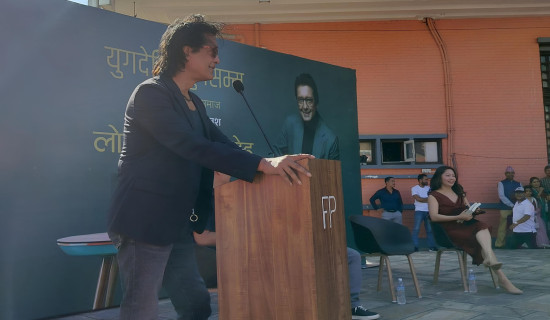
-square-thumb.jpg)
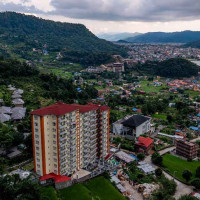
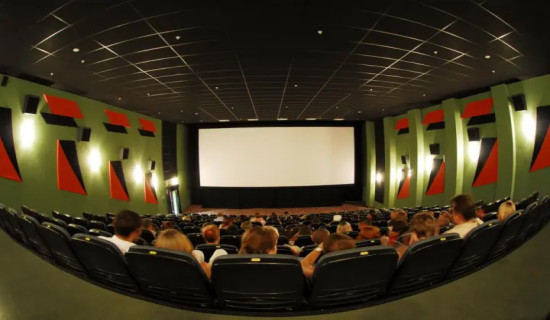


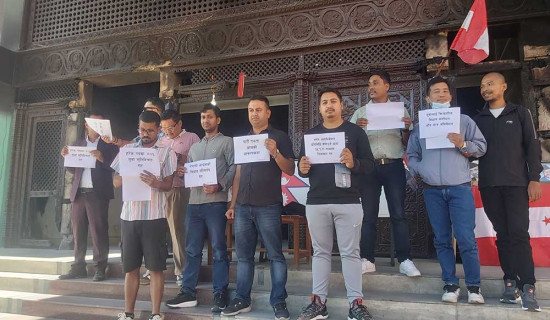
-original-thumb.jpg)
-original-thumb.jpg)
-original-thumb.jpg)
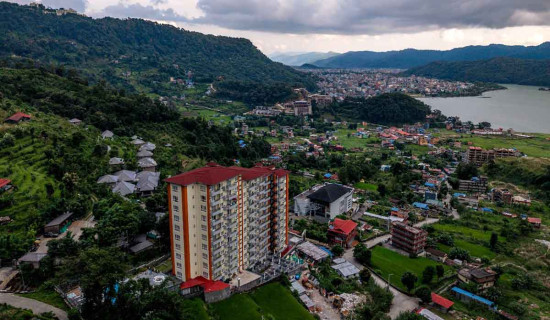
-original-thumb.jpg)
